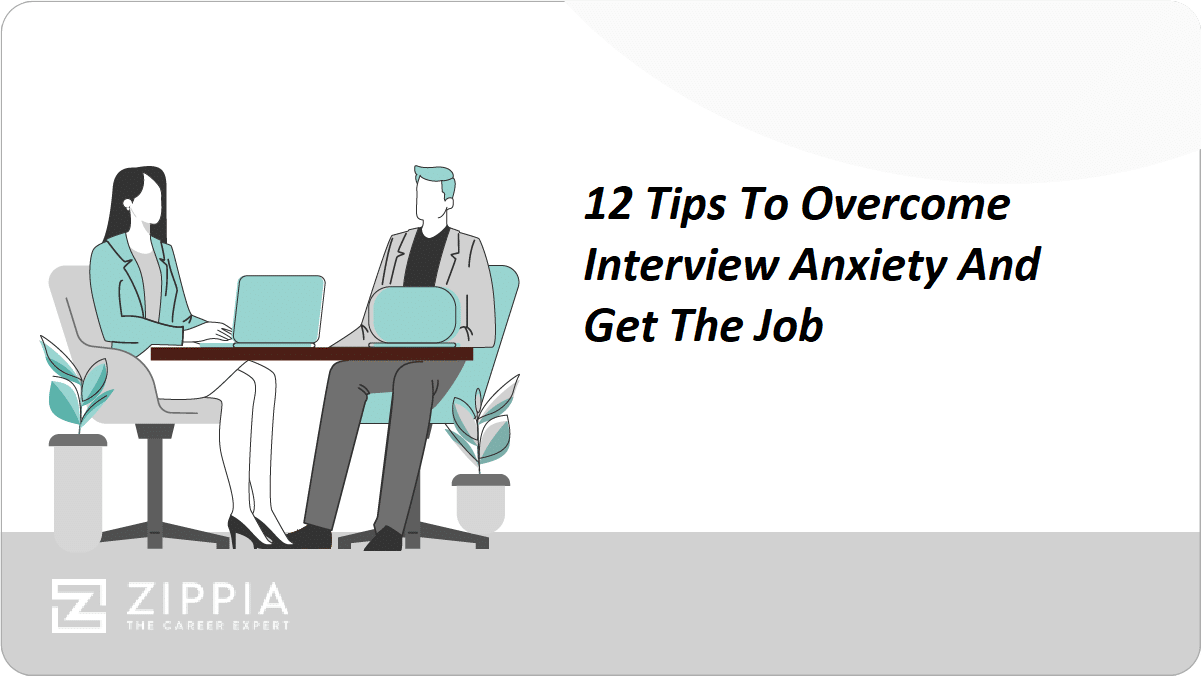- Process
- How Long Does It Take To Find A Job
- How To Find Internships
- How Many Internships Should I Apply To
- Networking Email
- Foreign Service Exam
- Working Abroad
- Organize Your Job Search
- How To Find A Second Job
- How To Get A Job In A New City
- Fun Facts About Me
- Job Search Burnout
- How Old Do You Have To Be To Work?
- Job Review Sites
- How To Become A Freelancer
- Picture
- Choose A Career
- Linkedin Optimization
Find a Job You Really Want In
Many people seek out means of attaining more freedom in their professional life and stumble upon the concept of becoming a freelancer. There is restrictiveness to the boundaries of traditional work that freelancing drops to the wayside.
Being a freelancer means working as an independent entity instead of being employed by another person or company long-term. As you can imagine, this comes with a much higher degree of freedom in some aspects, but it also comes with different pressures.
If you’re curious about the details of becoming a freelancer, read on.
What Does a Freelancer Do?
A freelancer is an independent professional who provides services to companies or individuals on a short-term or per-project basis. Freelancers aren’t tied to one specific employer. In fact, a successful freelancer typically holds a variety of clients.
The expectations, work environment, taxes, and experience of a freelancer are typically very different from that of a traditional worker. While there are a lot of benefits that come along with pursuing a career in a freelancing position, there are also several challenges to consider before diving right in.
The Benefits of Becoming a Freelancer
There are several good reasons why millions of people in the United States turn to freelancing to support the weight of their income.
-
Extra freedom and flexibility. One of the most glaring upsides to a freelancing career is that it allows you to have more freedom and flexibility in your professional life.
Many new and exciting freedoms come with freelancing. Being a freelancer permits the worker to set their schedule to their liking. If you prefer working for only an hour or two every single day, then you can do that.
Alternatively, if you’re more into a night owl schedule, you can stay up all night a few times a week to get your work done. Additionally, you’re given the freedom to take days off when you see fit.
-
You can be your own boss. For independent personalities, answering to the same boss day in and out can teeter on frustrating. That’s another benefit to pursuing freelancing work. It gives you the capability to be your own boss.
While you’ll have clients that you must answer to, there is no concrete boss that nitpicks your work or tells you exactly how to do things. That can be a refreshing feeling to many people.
-
Avoids office politics. When the same group of people works together daily for years, there are bound to be a few incidents of drama.
Being a freelancer negates the eventual office politics because you’re constantly jumping to new projects with different people and can sometimes even work remotely.
-
Allows for multiple streams of income. Traditional work usually requires so much of a person’s time and mental strength that they can’t find them to acquire additional income streams. Due to the nature of freelancing, having multiple income streams is practically part of the job description.
Freelancers tend to have several different clients, either in succession or simultaneously. If one project ends or a client falls off, it’s not the world’s biggest deal because many others are waiting to enlist your services.
-
Breaks the monotony of traditional work. There’s a cliche of becoming a professional adult that goes something to the tune of having your soul slowly crushed from repeatedly doing the same thing day after day.
While this trope is a bit excessive, it does speak to one of the biggest benefits of becoming a freelancer – the monotony of traditional work is out of the question.
When you’re running all the cogs of your own freelancing business, there is such a wide range of tasks to be done that boredom is nearly impossible. Plus, freelancers usually work with various clients, which dulls the typical repetition of consistently working with the same team.
The Drawbacks of Becoming a Freelancer
At first glance, becoming a freelancer might seem like the perfect fit. However, there is the other side of the coin for every great thing about a freelance career. There are also quite a few difficult aspects to life as a freelancer.
-
The uncertainty of it all. There are no promises when it comes to freelancing. When you get a conventional job, there is a degree of security that freelancing simply doesn’t have.
For example, if you get sick while working in a traditional position, you’ll likely have several paid or unpaid sick days at your disposal to use. When you’re earning your income from freelancing, you won’t have defined sick days and would need to go without work until you heal.
Additionally, freelancing doesn’t have a guaranteed amount of money that comes in weekly or monthly. There is always the potential that you have times with fewer clients and less money coming in steadily. For many people, the instability and uncertainty of freelancing aren’t suitable for their lifestyle needs.
-
Feelings of loneliness. Many folks are used to the community of a traditional work environment. You form tight-knit bonds with co-workers when you’re always working with the same people. These types of connections can assist in your professional responsibilities of the moment and even help you in your future career.
When you’re working as a freelancer, the bonds forged aren’t nearly as deep. While you may have excellent working relationships with clients and people you work on projects with, there isn’t the same degree of closeness because you don’t see each other every day, and you’re always working with different people.
This type of work environment can be a lonely experience for some people.
-
A lack of structure. The guidelines and expectations in a traditional job are often set clearly from the beginning. You know exactly when you’re expected to be working and what your tasks involve. With a freelancing position, these details can often be less conveyed less straightforwardly.
While many professionals thrive in a working environment that gives them the freedom to set their own schedule, others become disorganized and fall behind on their responsibilities.
-
Stiff competition. There are many millions of people trying to make it as freelancers in a variety of different fields. The popularity of freelancing has created a professional ecosystem with an enormous amount of competition daily.
When you commit to living as a freelancer, you must be prepared for the near-constant competition you will face to land clients and jobs.
-
It doesn’t come with benefits. There is much more to traditional jobs than just making money, such as earning benefits. With a freelancing job, you typically won’t receive any benefits from your work. When you want vacation time, it won’t be paid vacation. You won’t be able to enroll in any available loan forgiveness programs or receive healthcare.
Many people value these types of benefits even more than they do their salary, which is why freelancing isn’t the ideal option for everyone.
The Most Popular Types of Freelancing Careers
While being a freelancer can be conducive to various careers, a few occupations fit perfectly with the lifestyle. Below are five of the most popular types of freelancing careers.
-
Average Salary: $38,897
The many intricate videos that people see put together in commercials, movies, and other media are made at the hands of videographers. Videographers have a hand in all parts of the video-making process, from shooting to editing.
The responsibilities of a videographer typically involve:
-
Collaborating with a creative team to produce a film product
-
Gathering the proper equipment for a video shoot
-
Setting up and cleaning the equipment
-
Taking raw film footage
-
Participating in the editing process with other professionals
Since videographers work on a shoot-to-shoot basis, the position is ideal for freelancing. Actually, many videographers find that working freelance is the best way to gain some positive traction in the industry.
-
-
Average Salary: $46,824
Creating and maintaining a social media presence has become an ever-growing aspect of modern marketing. Companies and individuals alike are eager to build a sustainable following on their social media accounts, and they’re happy to hire social media specialists for these services.
Social media specialists are in charge of creating enticing content on various social media platforms such as Twitter and Instagram. Their goal is to expand brand awareness and audience reach.
The daily tasks of a social media specialist include:
-
Developing a winning social media strategy
-
Creating meaningful content to drive audience engagement
-
Optimizing their client’s social media pages
-
Analyzing and improving data from social media
-
Acting together with other branches of their client’s company
Many of these social media savvy experts choose to structure their career as a freelance pursuit. With social media all taking place digitally, it makes sense why this skill could transfer into a freelance or remote position.
-
-
Average Salary: $54,502
Before any piece of written material can be put out to its audience, it must be thoroughly combed over by an editor to ensure that it is polished to perfection. From grammar details to tone mishaps, there are many concerns that an editor has.
They’re a crucial step in the publication process standing between a writer and publisher. As such, they need exceptional writing and communication skills.
The duties of an editor include:
-
Reading and rewriting pieces in various styles for clarity and grammar
-
Modifying content as needed and providing guidance to writers
-
Verifying the claims stated in written works
-
Making crucial decisions about the approval of published content
-
Adhering to their publication’s editorial policy
Similar to a social media specialist, much of an editor’s job has the potential to take place remotely or on a freelancing basis. Many editors find it lucrative to sell their expert services to writers looking to tune up their work.
-
-
Average Salary: $57,413
Writers are another pivotal piece of the publishing system. They are the first step in creating the original structure of a piece that will eventually be published online or in print. Based on assignments, they develop written content in accordance with a particular style and goal.
There are a variety of different roles that writers can fall into, from becoming a novelist to a copywriter. In addition to writing content from start to finish, professional writers must also be heavily involved in the research and editing end of things.
The job of a writer can differ depending on their specific title but usually involves:
-
Researching various topics
-
Adhering to the editorial and style guidelines of the client
-
Conveying information in an entertaining and clear way
-
Targeting content to a specific audience
-
Revising work based on comments from editors
The career of a writer is often accomplished through freelancing means. Writers offer their services on a short-term or project-by-project basis that can eventually be extended into a long professional relationship.
-
-
Average Salary: $71,089
While roaming thousands of random websites every day has become an integral part of everyone’s life, few searchers stop to ponder who is behind bringing these pages to life. This is the responsibility of a website designer.
Based on collaboration with business owners and companies, a website designer lays out the ideal blueprint for making their website requests come to virtual life.
The role of a website designer involves:
-
Discussing potential web page ideas with clients
-
Incorporating required features into the website design
-
Analyzing website designs to ensure the proper functioning
-
Maintaining a website’s appearance
-
Adhering to the brand’s guidelines and style
The details of a website designer’s job usually demand that they work with various clients on freelance terms. With so many companies and people who only need a web designer for the length of a project term, it makes sense why many website designers complete their work on a project-to-project basis.
-
Frequently Asked Questions about Becoming a Freelancer
-
How is being a freelancer different from traditional work?
Freelancing is different from traditional work in just about every way, from how you file your taxes to the environment that you complete your work in. Since freelancers don’t work full-time for a company directly, they’re often in charge of running their professional life like a business.
This requires a varied set of skills and adaptability to be successful. Depending on your situation or personality, these differences can either be a huge benefit to you or a major problem.
-
How many people are freelancers in the United States?
There are an estimated 59 million freelancers in the United States, as of 2020. This represents an increase of around 6 million people who have joined the freelancing workforce since 2014.
-
What is the best way to start freelancing?
The best way to start freelancing is to make a public profile on whatever platform is popular in your industry. The beauty of freelancing is that it’s unique to every person who embarks on the journey.
Your methods of finding freelancing success could look drastically different than the next person. However, a safe bet for where to start would be the following five steps for becoming a freelancer.
How to Become a Freelancer In Five Simple Steps
If you’ve gathered a fair amount of research under your belt and are ready to start taking the next steps towards a freelance career, search no further. Below are five simple steps to help you become a freelancer.
-
Define your specialty. As with any traditional working style, you need to have a specialty that you can present to people of the freelancing world. To attract a wealth of clients, you need to offer something worthwhile. This could mean many different things, depending on your background and expertise.
Examples of common freelancing specialties include:
-
Software development
-
Digital Marketer
-
Application developer
-
Transcription and Translation
-
Remote Teaching
The list of interests and knowledge that people have turned profitable through freelancing nears the edge of endless. Before you fully commit to a freelancing career, consider the niche you’ll dive into and what experience and skills you have to work with.
-
-
Learn about your freelance industry. Whether you have a decade’s worth of experience in the freelance industry you’re breaking into or are a relative newbie, it’s important to do a refresher course to understand what you’re in for.
This learning can take place through a series of in-depth internet searches or by taking full-fledged courses. Whatever works with your schedule, budget, and life.
Once you have a firm grasp on the endeavor you’re pursuing, jump in with two feet.
-
Build up your personal brand. In a way, a freelancer becomes a one-person business. As such, freelancers need to establish their own trustworthy and effective branding. The first step towards wooing clients and earning money as a professional freelancer is establishing the foundation of this brand.
Start by creating an online presence that potential clients can turn to when they’re curious about who you are and why they should hire you for a project. This could be a website or a well-crafted profile on a professional social networking site like LinkedIn.
-
Formulate a plan of action. When starting out as a new freelancer, it’s difficult to picture what the path to success might look like. That’s why a crucial step in the process is laying out a strategic and realistic plan of action.
Declare each step in the process of your freelancing success and how you will reach these milestones. As a freelancer, these steps can be things like taking a free online class about your industry, setting up an enticing website, or landing your first client.
Developing a firm plan of action gives you something to hold onto when the going gets tough, which it will when you’re first getting involved in freelancing. When things seem bleak, you’ll always be able to look back on how far you’ve come and how much closer you are to your goals than when you started.
-
Check out various platforms for finding freelance work. The digital age was made for freelancers. There are many different platforms out there that are itching to help freelancers earn money with their craft.
Some examples of popular platforms for finding freelance work include:
-
Upwork
-
TaskRabbit
-
People Per Hour
-
Fiverr
-
Thumbtack
-
Flexjobs
While gig platforms might not be a forever solution to reigning in clients if you’re hoping to make freelancing your full-time job, it’s an excellent place to start and build up your body of work.
-
-
Works towards landing your first client. Freelancers need their clients to succeed. Earning at least one reliable client should be the first major milestone on your to-do list as a freelancer.
The first client you land doesn’t have to be the biggest catch in the world, but they should be a reputable person, small business, or company, and the project should earn you a bit of viable income.
At the end of this first project, you’ll have an addition to your portfolio and can show future clients that you’ve satisfied the wishes of others in the past already. With this token of established credit, you’ll be on the right track towards building a functioning freelance career with many more clients to come.
- Process
- How Long Does It Take To Find A Job
- How To Find Internships
- How Many Internships Should I Apply To
- Networking Email
- Foreign Service Exam
- Working Abroad
- Organize Your Job Search
- How To Find A Second Job
- How To Get A Job In A New City
- Fun Facts About Me
- Job Search Burnout
- How Old Do You Have To Be To Work?
- Job Review Sites
- How To Become A Freelancer
- Picture
- Choose A Career
- Linkedin Optimization





